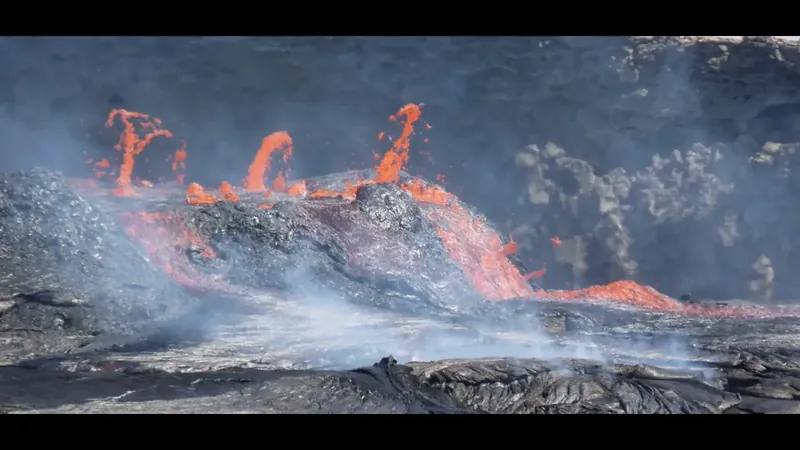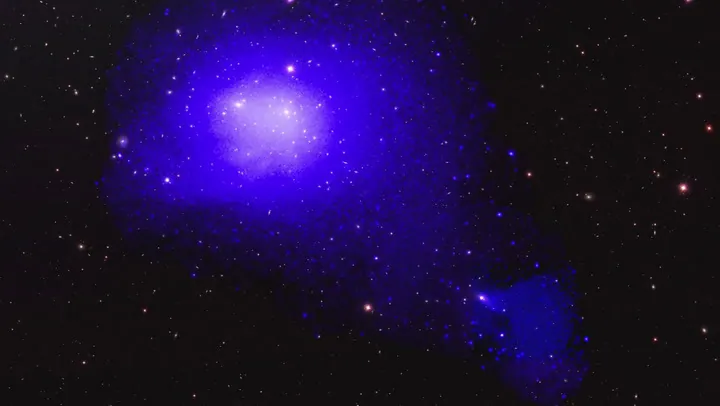
Is a New Ocean Forming? Scientists Say Africa Might Be Split in Two!
2025-07-02
Author: Jacob
A dramatic geological phenomenon is unfolding beneath eastern Africa, where a plume of molten rock is triggering a slow but steady splitting of the continent, possibly heralding the birth of a new ocean.
Led by researcher Emma Watts from Swansea University in the U.K., a recent study reveals that the Afar region in Ethiopia lies above a hot mantle plume that rises and falls rhythmically, akin to a "beating heart." These movements are intricately linked to the tectonic plates overhead, playing a vital role in the gradual rifting that could one day separate Africa.
Watts emphasized, "The mantle beneath Afar is dynamic and not uniform—it pulses and these pulses have unique chemical signatures. This is crucial for understanding the interaction between Earth's interior and surface."
The Afar region is a geological hotspot where three tectonic rift systems collide: the Red Sea Rift, the Gulf of Aden Rift, and the Main Ethiopian Rift. Over millions of years, as these plates pull apart, the crust stretches, thins, and breaks, laying the groundwork for what could eventually be a new ocean basin.
Geologists have long theorized about the presence of a mantle plume underlying this area, but details about its behavior were previously elusive. To shed light on this, the research team collected over 100 volcanic rock samples from Afar and the Main Ethiopian Rift, integrating their findings with existing geophysical data and advanced statistical models.
Their analysis uncovered a single, asymmetric plume marked by repeating chemical patterns, or "geological barcodes." Co-author Tom Gernon from the University of Southampton explained, "This chemical striping indicates that the plume is indeed pulsing. Where the tectonic plates are thinner or moving apart more rapidly, like in the Red Sea Rift, these pulses travel more efficiently—similar to blood flowing through a narrow artery."
Moreover, study co-author Derek Keir highlighted that the evolution of deep mantle upwellings is closely related to the movement of the tectonic plates above. He affirmed, "This has significant implications for how we interpret surface volcanism, earthquake activity, and the continental breakup process. This phenomenon could reshape our planet's geography in profound ways!









 Brasil (PT)
Brasil (PT)
 Canada (EN)
Canada (EN)
 Chile (ES)
Chile (ES)
 Česko (CS)
Česko (CS)
 대한민국 (KO)
대한민국 (KO)
 España (ES)
España (ES)
 France (FR)
France (FR)
 Hong Kong (EN)
Hong Kong (EN)
 Italia (IT)
Italia (IT)
 日本 (JA)
日本 (JA)
 Magyarország (HU)
Magyarország (HU)
 Norge (NO)
Norge (NO)
 Polska (PL)
Polska (PL)
 Schweiz (DE)
Schweiz (DE)
 Singapore (EN)
Singapore (EN)
 Sverige (SV)
Sverige (SV)
 Suomi (FI)
Suomi (FI)
 Türkiye (TR)
Türkiye (TR)
 الإمارات العربية المتحدة (AR)
الإمارات العربية المتحدة (AR)